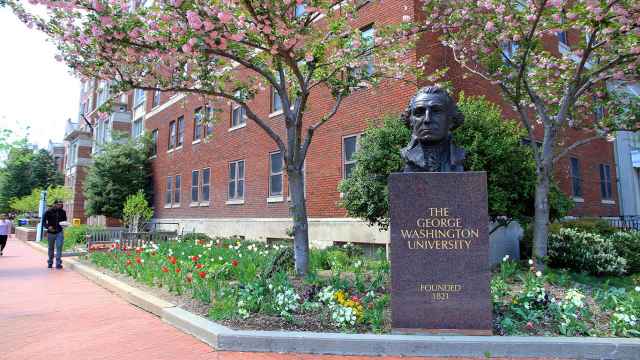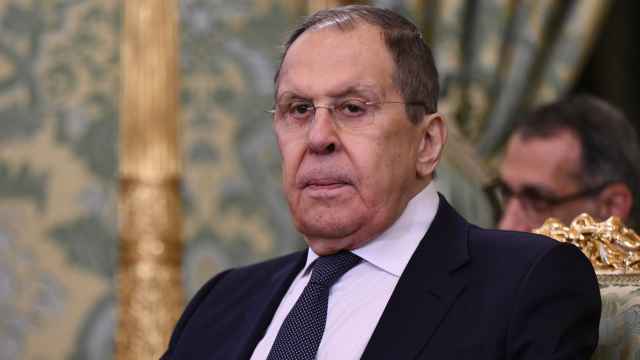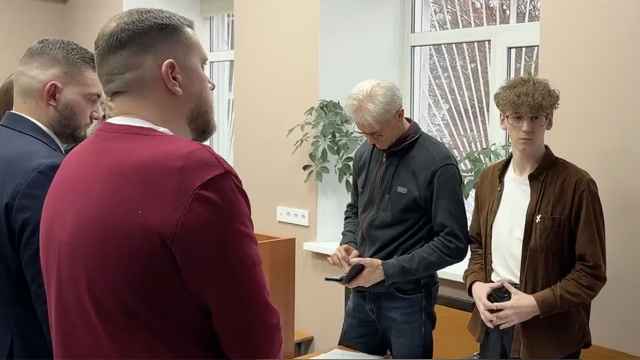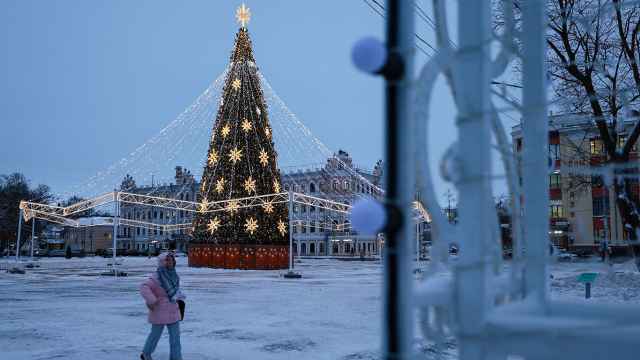WASHINGTON — Standing on a chair so he can see over the lectern, 8-year-old Jack Thomas peered at a sea of reporters, cameras and microphones at a news conference and — with a little prompting from his dad — said what he came all the way from Minnesota to say.
"I'm from Russia. I have a younger brother that's in Russia too. I would like him to be home," he said simply.
Except that there is nothing simple about the adoption standoff between the U.S. and Russia. Jack's adoptive parents — along with other families trying to adopt from Russia — came to Washington on Tuesday to offer what they hope is a resolution.
They are part of an estimated 230 U.S. families that had been matched with 300 Russian children — children they have met, bonded with, and were in the process of adopting when the ban on U.S. adoptions in Russia went into effect Jan. 1.
The trip to Washington to push their proposed adoption ban resolution is just the latest move in an ongoing effort to end the standoff.
The families have sent a small group to meet with Russia's ambassador to the U.S., Sergei Kislyak. They have pleaded with members of Congress. They appealed to U.S. President Barack Obama in an open letter Monday in The Hill, a Capitol Hill newspaper that covers congressional and governmental issues. And they are pushing for the issue to be on the agenda when Obama and President Vladimir Putin meet at a Group of Eight summit in Northern Ireland in June.
On Tuesday, tired of waiting for the two governments to find a solution, the families unveiled their own set of proposals which they hope will form the basis for a resolution that has proven elusive so far.
"We all realized that as families we needed to come together in order to try to find a solution to this impasse," said Sabrina Dickenson Turri, a spokeswoman for the families, who unveiled details of the plan and said it was designed to address specific concerns expressed by Russian officials.
The plan calls for:
• Increased frequency, duration and compliance of post-adoption reporting requirements
• Greater access to adopted children for the Russian Federation, through scheduled consular visits, notification if a child welfare case is opened, and access to medical records in such a case
• Increased post-adoption education for adoptive parents
Adopted by a mother who was raised in foster care, Turri has already adopted a son from Russia and is in the process of adopting a 1-year-old daughter with special needs. In recent months, she has become well-versed in adoption politics.
"Until we can address some of these larger global issues we are not going to be able to get our children home," Turri said, and added, her voicing catching, "We need to rise above the politics, prioritize the children and don't let our children be abandoned again due to politics."
The adoption ban came just days after Obama signed the Magnitsky Act — a law banning U.S. visas and freezing U.S. assets for Russian officials deemed by Washington to have violated human rights.
The adoption ban is also known as the Dima Yakovlev law, named after a Russian orphan who was adopted by parents in Virginia and died of heat stroke after being left in a hot car for nine hours. It underscores the concerns Russia has about the welfare of children after they are adopted in the U.S.
Of the roughly 60,000 Russian children adopted by US parents since the collapse of the Soviet Union, at least 20 have died in the care of their adoptive parents. Russian officials suggest many more adopted children have been neglected or abused, but say finding records and documentation to support those claims has been difficult.
"These families here are incredibly motivated and we invite the Russian Federation to use these families as a pilot program and put the spotlight on us," said Garrett Boehm, an attorney from Chicago who has a 6-year-old son from Russia and is trying along with his wife to adopt a young daughter from there as well.
"We'll take the pressure and show that we are reliable and the Russian Federation can have confidence that these children will be cared for reliably," he said.
Jack Thomas' parents, John and Rachel, have been trying to adopt Jack's biological brother from Russia — a little boy they call Teddy who will turn 5 in June — ever since they learned about him when they finalized Jack's adoption in December 2009.
"The bottom line is, these guys are brothers, and no matter what the law says, there will be a day when my son will meet his brother," John Thomas said.
"He's his brother's keeper," he added.
Related articles:
A Message from The Moscow Times:
Dear readers,
We are facing unprecedented challenges. Russia's Prosecutor General's Office has designated The Moscow Times as an "undesirable" organization, criminalizing our work and putting our staff at risk of prosecution. This follows our earlier unjust labeling as a "foreign agent."
These actions are direct attempts to silence independent journalism in Russia. The authorities claim our work "discredits the decisions of the Russian leadership." We see things differently: we strive to provide accurate, unbiased reporting on Russia.
We, the journalists of The Moscow Times, refuse to be silenced. But to continue our work, we need your help.
Your support, no matter how small, makes a world of difference. If you can, please support us monthly starting from just $2. It's quick to set up, and every contribution makes a significant impact.
By supporting The Moscow Times, you're defending open, independent journalism in the face of repression. Thank you for standing with us.
Remind me later.





